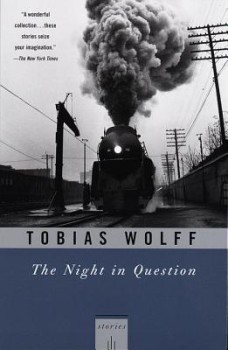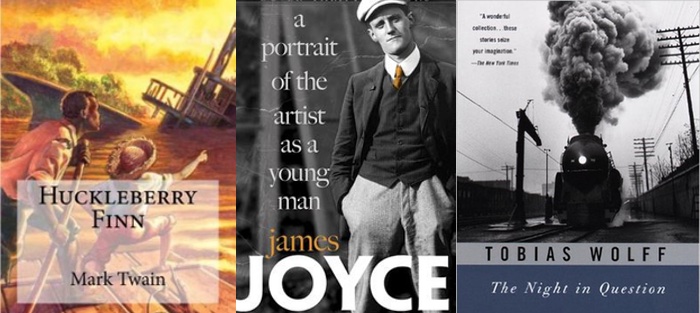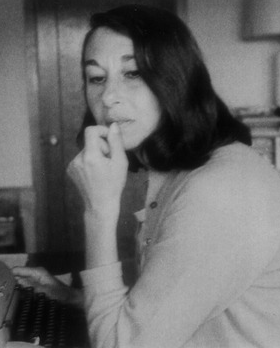J.D. Salinger’s The Catcher in the Rye was first published in 1951. Soon after, James Stern parodied the book’s now-famous colloquial style: “This book though, it’s too long. Gets kind of monotonous. And he should’ve cut out a lot about these jerks and all at that crumby school. They depress me. They really do.” Almost sixty years later, it’s easy to chalk up Stern’s lightly mocking tone to historical miscalculation. Too long? Not, evidently, for the millions upon millions of people who have bought and read the book. Monotonous? Apparently the generations of readers who say the book spoke to and for them beg to differ. Depressing? Seems to be part of its appeal.
 And yet I’m not sure Stern’s review should be so easily dismissed. The man’s got a point, if not about Catcher in particular then about the problem of kid-speak in general. Yes, problem. Despite the title of this essay, and despite my general interest in colloquial narrators and narratives, the danger of overdoing it—of voice becoming chatter, of chatter becoming clutter—is very real. When it comes to verbal tics (“like,” “you know,” “I mean”), repetition, and any and all forms of slang, a little can go a long way. Instead of kid-speak, then, and though most of the literary examples I’ll be drawing from do employ a colloquial voice, this essay will focus not on language so much as narrative distance; that is, the space—measured in years and access to hindsight—between the narrative and the childhood or adolescent events (kidhood, we’ll call it) being narrated. While there are many advantages and disadvantages to either protracting or constricting this distance—many of which I’ll consider in the next few pages—perhaps the greatest benefit of writing about kidhood from a kid’s point of view is the dramatic possibilities of trapping a protagonist or narrator in his/her present, in his/her right now, without reference to the broader, more reflective environs of adulthood. I’m talking primarily here about kidhood narrators’ conduciveness to narrative blind spots, a term I’ll further define later in the essay.
And yet I’m not sure Stern’s review should be so easily dismissed. The man’s got a point, if not about Catcher in particular then about the problem of kid-speak in general. Yes, problem. Despite the title of this essay, and despite my general interest in colloquial narrators and narratives, the danger of overdoing it—of voice becoming chatter, of chatter becoming clutter—is very real. When it comes to verbal tics (“like,” “you know,” “I mean”), repetition, and any and all forms of slang, a little can go a long way. Instead of kid-speak, then, and though most of the literary examples I’ll be drawing from do employ a colloquial voice, this essay will focus not on language so much as narrative distance; that is, the space—measured in years and access to hindsight—between the narrative and the childhood or adolescent events (kidhood, we’ll call it) being narrated. While there are many advantages and disadvantages to either protracting or constricting this distance—many of which I’ll consider in the next few pages—perhaps the greatest benefit of writing about kidhood from a kid’s point of view is the dramatic possibilities of trapping a protagonist or narrator in his/her present, in his/her right now, without reference to the broader, more reflective environs of adulthood. I’m talking primarily here about kidhood narrators’ conduciveness to narrative blind spots, a term I’ll further define later in the essay.
Another term I haven’t used yet—one that is particularly relevant to this topic of narrative distance—is consciousness. The term is akin to point of view, of course, but (at least for the duration of this essay) refers not merely to who is telling the story but how and from what vantage point. An extreme attempt to channel a child’s consciousness is James Joyce’s A Portrait of the Artist as a Young Man. Here are the first few lines from that book (italics mine):
Once upon a time and a very good time it was there was a moocow coming down along the road and this moocow that was coming down along the road met a nicens little boy named baby tuckoo….
His father told him that story: his father looked at him through a glass: he had a hairy face. (p. 20)
Him, we learn later, is Stephen Dedalus, the book’s protagonist. What we’re getting are his infant thoughts, as unmediated as possible. We’re not only viewing what Stephen perceives but experiencing these perceptions in the same way he is; the narrative’s consciousness is the boy’s consciousness. The reader has to gather on his/her own that the boy’s being told a fairy tale of sorts by his father—there’s no outside presence to aid our understanding of what’s going on, just as there isn’t one for Stephen himself. As the boy gets older and therefore better at assigning cause and effect, the narrative follows suit. Here’s another, much later description of someone an older Stephen is observing:
— O I did! I did! [Lynch] cried.
Stephen turned toward his companion and looked at him for a moment boldly in the eyes. Lynch, recovering from his laughter, answered his look from his humbled eyes. The long slender flattened skull beneath the long pointed cap brought before Stephen’s mind the image of a hooded reptile. (p. 184)
Just as in the first passage, Stephen is perceiving another person and—similar to his father’s hairy face—the physical details Stephen notices about Lynch separate the two from one another. But this time Stephen’s perceptions are more comprehensible, to himself and therefore to us. He’s able to compare Lynch to something else (something scaly?) because his life is no longer a series of non-sequiturs.
This decision about narrative distance, then, is one of the most fundamental an author makes, particularly when writing about kidhood. As a craft issue, it’s also one of the most clear-cut. How much narrative distance should an author employ? A lot, it seems, or none at all. You don’t find many stories about eighteen-year-olds remembering that time when they were fifteen, and there’s a reason for that: if one is going to take advantage of perspective and hindsight, one might as well take full advantage of it. In Tobias Wolff’s short story “Powder,” the narrator remembers his estranged father driving him to his mother’s through a snowstorm after a ski trip. That the narrator is now an adult is fairly clear without any of the obvious markers (the make and model of the car is never named, the surroundings never dated). Partly this is due to the story’s tone, which has an equanimity only years and distance can provide. When a state trooper pulls the narrator and his father over, the event is reported objectively, or at least without panic:
[He] waved us down outside the resort. A pair of sawhorses were blocking the road. The trooper came up to our car and bent down to my father’s window. His face was bleached by the cold. Snow flakes clung to his eyebrows and to the fur trim of his jacket and cap.
“Don’t tell me,” my father said.
The trooper told him. The road was closed. (p. 34)
Unlike the passages from Portrait of the Artist (especially the first one), this passage has a clear sense of cause and effect: “‘Don’t tell me’… The trooper told him.” Such in-scene coherence, such segue-making, is achieved through hindsight, the result of having had time to consider motive and motif, action and reaction. Toward the end of “Powder,” the narrator confirms his age by offering us information outside the timeframe of the story’s events: “What I did not know was that my father would wheedle and plead his way past [the troopers]… and get me home for dinner, buying a little more time before my mother decided to make the split final” (37).
This move outside of the scene is interesting for another reason: at first glance it appears unnecessary. The story would function fine without revealing that the two make it home in time for dinner, let alone that the father and mother don’t get back together. One easy assumption to make is that increased narrative distance results in decreased narrative immediacy, and this digression by Wolff’s narrator could be viewed as a case in point. All of the sudden our attention is directed somewhere other than the scene at hand; worse, it could be argued, we’re told that this seemingly encouraging turn of events—the narrator’s dad is a great driver, and the boy is going to get home after all—is all for naught: there will be no marital reconciliation. It’s as if someone has jammed an air pump into a basketball, then unscrewed the pump from the needle. One can hear the air come hissing and leaking out of the ball.
This leaking is only temporary, though. For while narrative distance can in some sense decrease narrative immediacy, a distinction needs to be made here between urgency and drama. The reason we’re given the glimpse into the future has little or nothing to do with the adult narrator’s duty to divulge what happens next; it’s to expand—and complicate—the drama of the present scene. Perhaps just as pivotal to the story as this digression is that the narrator returns us to the scene. Rather than ending in the future, he brings us back to his boyhood self sitting shotgun in his father’s car:
This was one for the books. Like being in a speedboat, only better. You can’t go downhill in a boat. And it was all ours. And it kept coming, the laden trees, the unbroken surface of snow, the sudden white vistas. Here and there I saw hints of the road, ditches, fences, stakes…. And the best was yet to come—switchbacks and hairpins impossible to describe. Except maybe to say this: if you haven’t driven fresh powder, you haven’t driven. (p. 37)
The narrator’s earlier nod to what’s to come isn’t intended to wrap the story up or provide necessary answers. By telling us what ultimately happens to this family, the story indicates, paradoxically, that it isn’t about what ultimately happens to this family. If you were under the impression that this was a reconciliation story, the narrator seems to say, you’re wrong. What is the point of the story? This very scene, this very moment: with the trees, and the snow, and his father, “in his forty-eighth year, rumpled, kind, bankrupt of honor, flushed with certainty” (37).
 If the primary advantage of writing close to a narrator’s or protagonist’s consciousness isn’t immediacy, what is it? One answer—Joyce’s—is the attempt itself. To capture the cadences of how we process and think about the world, in real-time, has obvious and intriguing merit. Another answer has to do with what I’ll call narrative blind spots. When I’ve used this term in class I’ve asked my students to brainstorm assumptions either they or their characters make about the world. This is easier said than done, particularly when analyzing one’s own life, and the initial response is typically blank stares. I’ll provide them with an example: last summer, I’ll say, I dropped a friend’s daughter off at soccer practice, and along the way realized she didn’t know how to roll down her window; all she’d ever used were automatic windows. (When I asked her if she wanted her window down, she said yes, then continued to sit there sweating.) The class can usually take it from there. Everyone knows how to drive on ice, someone might say; everyone knows how to text message, or make an omelet, or play a certain card game. The point I’m trying to make, now and to my class, is that we all make assumptions all the time; that is, we assume our knowledge is shared knowledge, and—often—that it’s complete knowledge. Which it is: or, anyway, it’s complete enough to get us through our daily lives right up until we bump into someone who doesn’t share the same understanding of how the world works.
If the primary advantage of writing close to a narrator’s or protagonist’s consciousness isn’t immediacy, what is it? One answer—Joyce’s—is the attempt itself. To capture the cadences of how we process and think about the world, in real-time, has obvious and intriguing merit. Another answer has to do with what I’ll call narrative blind spots. When I’ve used this term in class I’ve asked my students to brainstorm assumptions either they or their characters make about the world. This is easier said than done, particularly when analyzing one’s own life, and the initial response is typically blank stares. I’ll provide them with an example: last summer, I’ll say, I dropped a friend’s daughter off at soccer practice, and along the way realized she didn’t know how to roll down her window; all she’d ever used were automatic windows. (When I asked her if she wanted her window down, she said yes, then continued to sit there sweating.) The class can usually take it from there. Everyone knows how to drive on ice, someone might say; everyone knows how to text message, or make an omelet, or play a certain card game. The point I’m trying to make, now and to my class, is that we all make assumptions all the time; that is, we assume our knowledge is shared knowledge, and—often—that it’s complete knowledge. Which it is: or, anyway, it’s complete enough to get us through our daily lives right up until we bump into someone who doesn’t share the same understanding of how the world works.
These sorts of assumptions, deepened and correctly placed, can be a great source of tension in fiction: between a character and another character, between a character and the audience. Michael Chabon remembers reading the opening lines of John Cheever’s “The Swimmer” for the first time—“It was one of those midsummer Sundays when everyone sits around saying, ‘I drank too much last night’”—and having no idea that such Sundays existed. Rather than being discouraged, though, Chabon allowed himself to get “lost in the weird, lovely dreamland of John Cheever’s greatest story.” This effect can work in reverse, too: a narrator/narrative can assume we don’t know something we understand completely, a strategy that makes strange activities that otherwise would seem normal. In Charles Portis’ novel True Grit, in which fourteen-year-old Mattie Ross sets out to “avenge her father’s blood,” Mattie spends much of the first chapter explaining how and why her father, Frank Ross, was killed. A man who worked for him named Tom Chaney got raging drunk while playing cards and started waving a gun. When Ross asked him to hand over the weapon, Chaney opted to shoot him instead. “Some people might say,” Mattie considers, “well, what business was it of Frank Ross to meddle? My answer is this: he was trying to do that short devil a good turn. Chaney was a tenant and felt responsibility. He was his brother’s keeper. Does that answer your question?” The answer, of course, is no, it doesn’t answer my question… because we’d never thought to ask the question in the first place. The fact that she feels the need to justify her father’s noble actions—trying to disarm a drunk—tells us we’re not her intended audience, and by extension, that our (less violent) world and worldviews are removed from hers.
 Perhaps the most famous kidhood blind spot in American letters is Huck Finn’s exclamation, “All right, then, I’ll go to hell!” (214). He says it toward the end of The Adventures of Huckleberry Finn, after Jim, runaway slave and friend, has been captured by Mr. Phelps. Huck thinks the moral thing to do is send Jim’s former owner, Miss Watson, a letter indicating his whereabouts, but opts for immorality instead: rescuing Jim and ensuring his freedom. Of course, we know Huck’s wrong; or rather, that his sense of right and wrong is wrong; or rather, that his sense of right and wrong—his conscience—is right, and it’s the world’s sense of it that’s wrong. Huckleberry Finn is a satire, and the social point being made here is unmistakable: the more sinful society tells Huck he’s acting, the more ethical his actions likely are; the dirtier his conscience appears to him, the cleaner it appears to us. Huck’s decision goes beyond satire, though. Its power relies at least in part on its plausibility. Huck may not be going to hell, but he truly believes he is. Despite the comic turn in the last part of the novel, he’s not at this moment being glib, or snarky, or precious. In tearing up the letter and choosing to help his friend, he truly believes he’s tearing up his everlasting soul. And he doesn’t believe this due to obtuseness—we’re not being given in this scene permission to pat our more enlightened selves on the back—but because he fully inhabits his world, his time, his place.
Perhaps the most famous kidhood blind spot in American letters is Huck Finn’s exclamation, “All right, then, I’ll go to hell!” (214). He says it toward the end of The Adventures of Huckleberry Finn, after Jim, runaway slave and friend, has been captured by Mr. Phelps. Huck thinks the moral thing to do is send Jim’s former owner, Miss Watson, a letter indicating his whereabouts, but opts for immorality instead: rescuing Jim and ensuring his freedom. Of course, we know Huck’s wrong; or rather, that his sense of right and wrong is wrong; or rather, that his sense of right and wrong—his conscience—is right, and it’s the world’s sense of it that’s wrong. Huckleberry Finn is a satire, and the social point being made here is unmistakable: the more sinful society tells Huck he’s acting, the more ethical his actions likely are; the dirtier his conscience appears to him, the cleaner it appears to us. Huck’s decision goes beyond satire, though. Its power relies at least in part on its plausibility. Huck may not be going to hell, but he truly believes he is. Despite the comic turn in the last part of the novel, he’s not at this moment being glib, or snarky, or precious. In tearing up the letter and choosing to help his friend, he truly believes he’s tearing up his everlasting soul. And he doesn’t believe this due to obtuseness—we’re not being given in this scene permission to pat our more enlightened selves on the back—but because he fully inhabits his world, his time, his place.
And because, just as importantly, he’s fully a kid. This world, the one I’ve been referring to as kidhood, is particularly suited to these sorts of narrative blind spots precisely because the author needn’t strip the young narrator or protagonist of his or her intelligence in order to employ them. At the risk of being nostalgic or cute in a way that Huck is not, I’d like to close this essay with two childhood memories of my own. Both of them take place during games of hide-and-seek with my father. The first is at home: my sister, brother and I would march around the house, looking for Dad, who, unbeknownst to us, would be following us from room to room, occupying whatever place we had just vacated. It was as if we had crossed the location off our mental lists, and therefore saw no need to ever return to it. The other memory takes place in a park maze. We were all together again—my brother, sister and I—following the manicured leafy walls in another unsuccessful search for our father. Meanwhile, Dad was peering over the walls, observing our progress. In both cases, the error of our ways can be excused by our age. (At least I hope so: I suppose it could also be explained by a shared slow-on-the-uptake gene.) We didn’t yet have the physical or mental wherewithal to see behind us or above us. We were all action, all forward movement—and took for granted that the information that was right in front of us was good and right and complete. Of course, our hide-and-seek exploits are not actually my memories but my father’s—and if I were to write a story about them I’d probably keep it that way: a son searching straight ahead, his father and adulthood glimpsed only briefly in the kid’s periphery.






